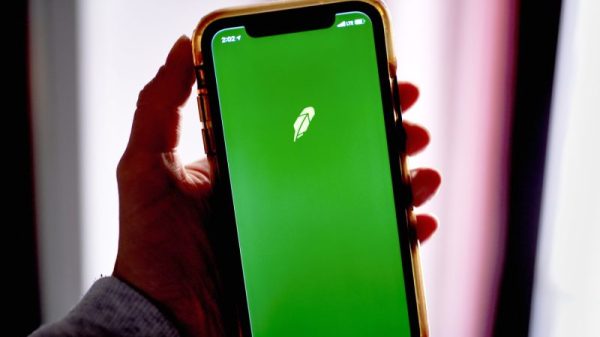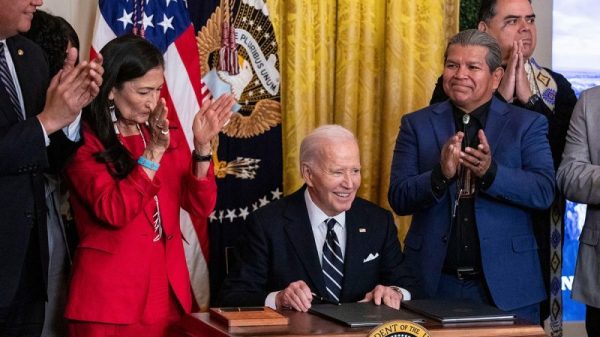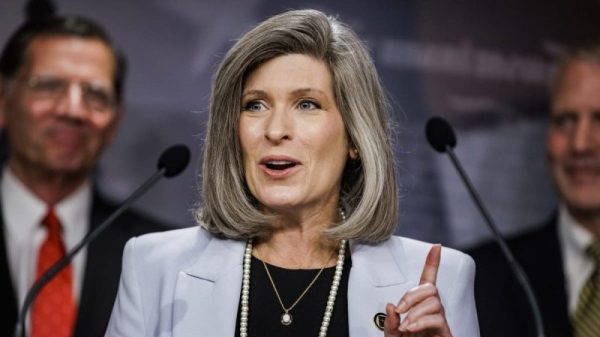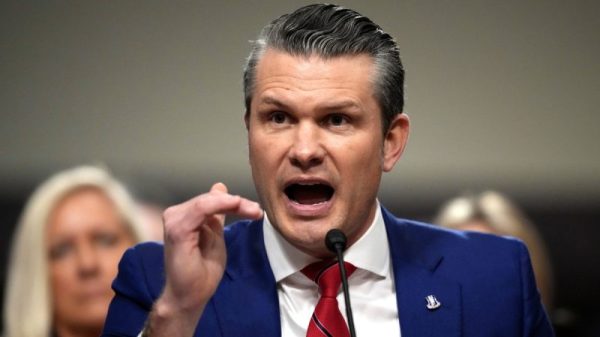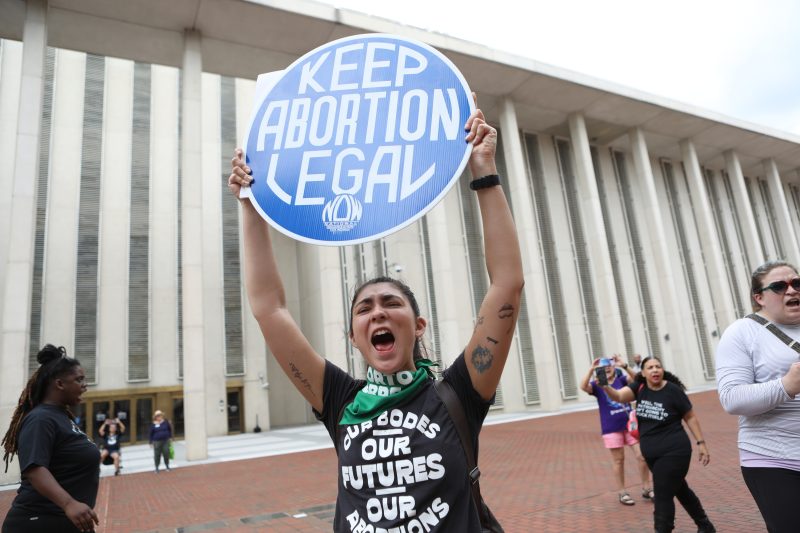The Florida Supreme Court is set to hear arguments Friday in a case that could trigger one of the country’s strictest and most far-reaching abortion bans, with justices weighing whether Republican-backed efforts to restrict the procedure violate the state’s constitution.
The case, brought by Planned Parenthood and other Florida-based abortion providers, centers on a provision in the Florida Constitution intended to protect the right to privacy, added by voters in 1980 and long interpreted by courts as a safeguard against abortion restrictions.
The Florida Supreme Court — which has struck down several abortion restrictions over the past few decades — has recently been reshaped by Florida Gov. Ron DeSantis (R) into what many consider one of the most conservative courts in the country. Several judges have roots in the antiabortion movement.
But even some conservatives have said in the past that Florida’s robust privacy clause protects abortion rights, making the court’s decision difficult to predict. Abortion rights advocates note that even the court’s conservative chief justice, Carlos Muñiz, noted years ago in a little-known law review article that the state’s privacy clause covers abortion.
“I have a high level of optimism, but nothing is for sure,” said John Stemberger, president of the Florida Family Policy Council, a leading antiabortion group in the state. “I’ve looked at the case 100 different ways, and there are weaknesses. It’s not a slam dunk.”
The state Supreme Court decision could have a two-step impact on abortion access in Florida.
While justices will consider the constitutionality of the state’s existing 15-week ban, which took effect last summer, their ruling will also determine the fate of a far stricter law passed this spring that would outlaw abortion after six weeks of pregnancy. Florida’s six-week ban is written to take effect only if the Supreme Court greenlights the 15-week law, 30 days after a potential ruling.
Both abortion bans include exceptions for the life of the mother and fatal fetal anomalies. The six-week ban includes additional exceptions for rape and incest and would also provide $25 million in annual state funding for crisis pregnancy centers, organizations that aim to dissuade people from getting abortions.
The outcome of the case could have sweeping implications for abortion access across the country. Last year, over 82,000 people got abortions in Florida, far more than were previously reported in any of the 17 states that have now banned all or most abortions. Of those states, Texas had the most reported abortions before the new wave of antiabortion laws, with over 50,000 abortions performed in the state in 2019.
The 15-week ban has compelled many patients to seek abortion care elsewhere, including those with life-threatening pregnancy complications. A six-week ban in Florida would impact tens of thousands more people, further straining already-full abortion clinics in states such as North Carolina and Illinois.
“A six-week ban is essentially synonymous with a total abortion ban,” Shelly Tien, an abortion provider at Planned Parenthood of South, East and North Florida and a plaintiff in the lawsuit, said.
Post-Watergate concerns about civil liberties in part led to the 1980 constitutional privacy amendment — which was passed by about 60 percent of Florida voters — granting “the right to be let alone and free from governmental intrusion into the person’s private life.” Abortion rights advocates at the time viewed the amendment as an insurance policy in case Roe v. Wade someday fell.
The clause has buttressed some of the strongest and broadest privacy laws in the country, making Florida a destination for abortion access long before Roe was overturned.
Whitney White, an attorney with the American Civil Liberties Union who will be representing the abortion providers, said Florida’s 15-week abortion ban “openly defies the Florida constitution.” Lawyers for the state, she added, are now urging the court to upend four decades of legal precedent.
“The state is not only asking the court to uphold this ban,” White said. “They are asking them to hold that there is no protection for abortion under the Florida Constitution whatsoever.”
DeSantis selected five of the seven justices on the state’s high court, the most of any Florida governor in a generation.
DeSantis’s nomination of Muñiz, the chief justice, was cheered by an antiabortion group that described his family as supporters of a Tallahassee crisis pregnancy center. Another DeSantis pick, Jamie Grosshans, was active with Christian legal advocacy groups that oppose abortion before she joined the court.
Justice Charles Canady, a former Republican congressman appointed by Gov. Charlie Crist, was public about his staunch antiabortion views when he sponsored legislation in 1995 to outlaw abortions later in pregnancy. His wife, state Rep. Jennifer Canady, a Republican, co-sponsored the six-week abortion ban.
Paul Flemming, the court spokesperson, declined to comment for this story on behalf of the justices.
The court’s decision could have political implications for DeSantis, who is running for president. He has cited the six-week ban as evidence of his conservative credentials, which could prove helpful in the Republican primary, but he has drawn criticism from some antiabortion activists for his failure to back a proposed nationwide ban.
If the court upholds the 15-week ban, abortion rights advocates are hopeful that voters could eventually restore access to abortion. Florida is one of several states where abortion rights groups have launched a campaign to get a measure enshrining abortion protections into the state constitution on the November 2024 ballot.
“This ballot initiative is the only way to reverse course for the 15-week or six-week ban in a time-effective manner,” said Lauren Brenzel, the campaign director for Floridians Protecting Freedom. She added that if the six-week ban goes into effect, “the devastation that that will cause for Floridians cannot be overstated.”
Nearly 900,000 signatures have to be certified as valid by Feb. 1 for the effort to go before voters next year. The group says it has already had enough signatures verified by the state to trigger a Florida Supreme Court review of the language, a key milestone in the effort.
Abortion rights supporters are aiming to build on a string of recent victories at the ballot box in states such as Michigan, Kansas and Kentucky. But in Florida, the campaign faces a harder path to victory: Unlike the other states, the constitutional amendment must garner at least 60 percent support at the ballot box.










